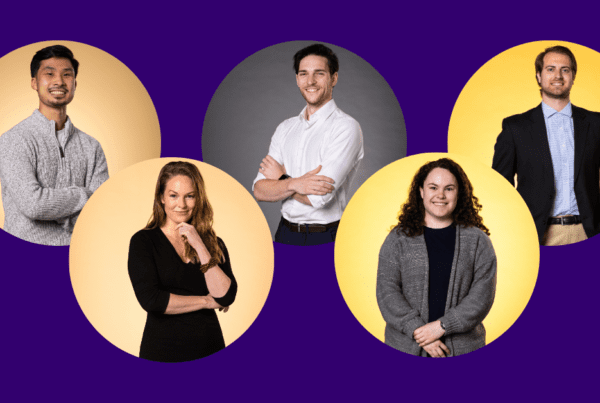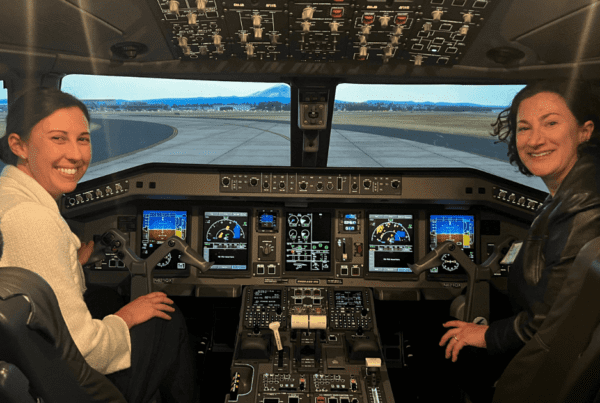Highlights | Welcome to the community
- UW Medicine Graduate Medical Education welcomes 502 new trainees this year.
- Trainees include residents and fellows in over 200 specialties and subspecialties.
- Currently there are more than 1,550 trainees rotating at over 500 sites in the Washington, Wyoming, Alaska, Montana and Idaho (WWAMI) region and beyond.
- New trainees are excited about building research and clinical skills while promoting diversity and inclusion and mentoring others.
- Current trainees advise incoming trainees to rely on teamwork and find balance between their work and personal lives.
As the new academic year begins, 502 new residents and fellows are joining UW Medicine Graduate Medical Education (GME) programs to further their medical and dental training.
Graduate medical education refers to the period of education in a particular specialty (residency) or subspecialty (fellowship) following medical or dental school. Here, trainees work in hundreds of different programs, from emergency medicine and surgery to lesser-known specialties such as nuclear medicine and headache medicine.
One in six physicians at UW Medicine is a resident or fellow, and over 100 graduating residents and fellows accept faculty roles within UW Medicine each year.
“It is always a pleasure to welcome new residents and fellows to our UW Medicine family. Every year, we look forward to training the next generation of exceptional physicians and to their many contributions to our patients — and to improving the health of all people,” says Byron Joyner, MD, vice dean for Graduate Medical Education and a Designated Institutional Official.
There are currently more than 1,550 trainees rotating at over 500 sites in the Washington, Wyoming, Alaska, Montana and Idaho (WWAMI) region and beyond. Trainees experience a diverse range of clinical education and hands-on learning experiences in hospitals and clinics, cities and rural communities.
“We are excited to welcome our incoming trainees to the UW School of Medicine as they begin the next phase of their training with us. Our residents and fellows are highly valued members of our UW Medicine team providing outstanding care to our patients and advancing our research and educational programs,” says Timothy Dellit, MD, interim CEO of UW Medicine, interim executive vice president for medical affairs and interim dean of the UW School of Medicine.
We asked current trainees which of their accomplishments (so far) that they’re most proud of and what advice they want to share, and asked incoming trainees what they’re most excited about as they start their advanced training.
Excitement for the near future
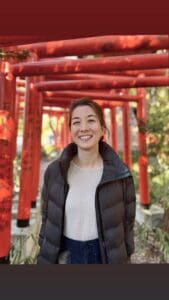
Alison Uyeda, MD
Alison Uyeda, MD, recent resident and incoming fellow in Pulmonary, Critical Care & Sleep Medicine
In 2019, I began my Internal Medicine residency training at the UW School of Medicine. Amidst a global pandemic, I found a sense of purpose and fulfillment within Pulmonary and Critical Care Medicine. I admired my colleagues in the field who embodied courage and compassion despite unprecedented challenges in the ICU. I am also grateful to have found outstanding mentorship from physician investigators at UW — those who reaffirmed my goal of contributing more broadly to the field of medicine through clinical research.
I am incredibly excited to embark on my fellowship training in Pulmonary and Critical Care Medicine this summer. I know that in this role I will grow immensely as a clinician, educator and leader. As a trainee within the physician-scientist track, I will also obtain my master’s degree in Clinical Epidemiology and develop the practical skills needed for success in clinical research. Every day, I feel deeply privileged to care for people in their most vulnerable moments. This perspective is what drives my passion to improve the lives of my patients and their families through my research and clinical care.
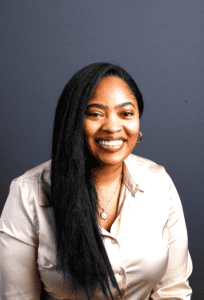
Kanesha Overton, MD
Kanesha Overton, MD, incoming intern in Urology
My primary goal as an intern is to develop and practice effective patient management. At the end of my intern year, I want to look back and say I was able to successfully utilize my nontechnical and technical skills to form meaningful connections with patients, address their unique needs, and support them holistically throughout their healthcare journey. I am most excited to work alongside great colleagues and build relationships that will last a lifetime.

Fei Wang, MD
Fei Wang, MD, incoming resident in Plastic Surgery
My goal as I start residency is to be able to acknowledge the anxieties and challenges that inevitably come with embarking on such a journey, while maintaining my openness and excitement for new experiences, new friendships and new opportunities. I hope to learn as much as I can to grow both as a resident physician and a person. I want to become someone who can provide both excellent and compassionate care for my patients, endless love for my friends, and steadfast support for my colleagues.
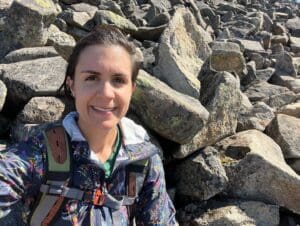
Samantha King, MD
Samantha King, MD, incoming resident in Plastic Surgery
The University of Washington had such a warm and welcoming atmosphere when I was here as a visiting medical student in the fall of 2022. I am excited to become a part of that culture and to learn from an elite group of friendly surgeons and physicians. I look forward to continuing the tradition of diversity and inclusion while also mentoring medical students aspiring to become surgeons themselves as a way to give back to my medical community.
Achievements from the recent past
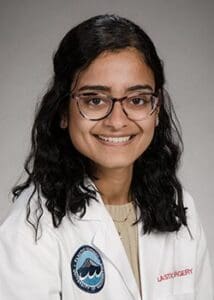
Nikhitha Thrikutam, MD
Nikhitha (Nikki) Thrikutam, MD, MPH, fourth-year resident, Plastic and Reconstructive Surgery
I am incredibly grateful for the graduated autonomy we have in our program. It has been incredibly gratifying to help my junior co-residents through cases and clinical care, just as my senior residents did for me.
I have also had the opportunity to participate in the Women in Surgery organization, which works to improve gender equity in surgical training. Collaborating with other female-identifying surgeons on outreach, research, and wellness has been a cathartic and incredibly meaningful experience. We are currently working on developing a curriculum to help new trainees identify and respond to gender-based microaggressions that we all experience as female-identifying surgical trainees.
Lessons learned and shared
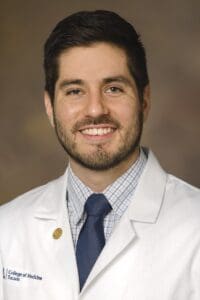
Fernando Picazo, MD
Fernando Picazo, MD, second-year fellow in Pulmonary, Critical Care & Sleep Medicine
As a Pulmonary and Critical Care fellow, I spend much of my clinical time navigating uncertainty in severe, acute illness. While I’ve grown more comfortable managing this uncertainty over the years of my training, I’ve found that this feeling is most uncomfortable at the start of a new role. My advice is to find and nurture relationships with those you trust and admire. I’ve grown the most during such times by leaning on the wisdom of peers and mentors and have found these relationships to be the most valuable and rewarding aspect of my training.
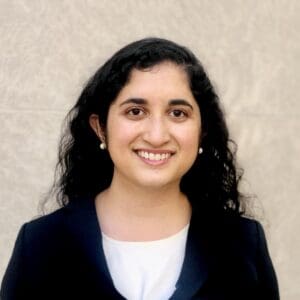
Mira John, MD
Mira John, MD, second-year fellow in Pulmonary, Critical Care & Sleep Medicine
Maintaining intentionality and proactivity with both your work and with life outside training goes a long way! Be present when you’re at work, whether by spending time to learn from your patients, speaking with their family members, completing your patient tasks efficiently, learning in didactics, or teaching your junior learners on your team. But also try to carve out time for yourself for something totally unrelated to medicine: spending time with loved ones, picking up a new hobby, self-care (sleep, doctor’s appointments, mental health). Juggling both professional and personal responsibilities is difficult; it’s very easy for one to overtake the other. The balance between the two also fluctuates during training. Learning how to maintain some intentionality with work and with life outside the hospital allowed me to better adapt during each of my rotations, prioritize tasks and obligations accordingly, and keep my focus on short- and long-term goals.
Editor’s Note: Responses were lightly edited for length, clarity and style. Any information or opinions shared in this article are personal views and do not represent those of the University of Washington or UW Medicine in any way, shape or form.
